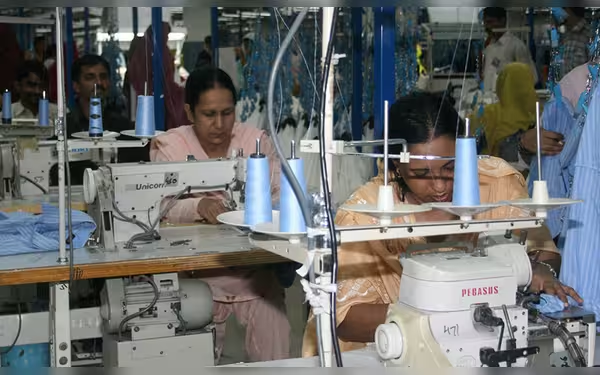Monday, December 23, 2024 07:20 PM
Wage Inequality Declines Globally: ILO Report Highlights Progress
- Wage inequality decreased in two-thirds of countries since 2000.
- High-income countries see faster productivity growth than wage increases.
- Persistent wage differentials highlight ongoing challenges for fair compensation.
 Image Credits: dawn.com
Image Credits: dawn.comThe ILO report reveals a decrease in wage inequality in two-thirds of countries, yet challenges remain for fair compensation and economic equity.
The issue of wage inequality has been a pressing concern for many years, affecting millions of workers around the globe. Wage inequality refers to the disparity in earnings between different groups of workers, which can be influenced by various factors such as education, experience, and the type of job. According to a recent report by the International Labour Organisation (ILO), there is a glimmer of hope as wage inequality has decreased in about two-thirds of countries since the year 2000. This is a significant development, indicating that efforts to address this issue are beginning to bear fruit.
Despite this positive trend, the ILO report highlights that substantial wage differentials still exist worldwide. This means that while some countries have made progress in reducing the gap between high and low earners, many workers continue to face challenges in achieving fair compensation for their labor. The report also notes that, on average, labor productivity in high-income countries has increased at a faster rate than real wages from 1999 to 2024. This suggests that while companies may be generating more wealth, the benefits are not being evenly distributed among workers.
Wage inequality can have far-reaching consequences, not just for individuals but for society as a whole. When a significant portion of the population struggles to make ends meet, it can lead to increased poverty rates, social unrest, and a decline in overall economic growth. Therefore, it is crucial for governments and organizations to continue working towards policies that promote fair wages and equitable labor practices.
While the decrease in wage inequality in two-thirds of countries is a step in the right direction, it is essential to remain vigilant. The persistence of wage differentials serves as a reminder that there is still much work to be done. By fostering an environment where all workers are compensated fairly, we can create a more just and prosperous world for everyone. It is a collective responsibility to ensure that the benefits of economic growth are shared widely, paving the way for a brighter future for all.













